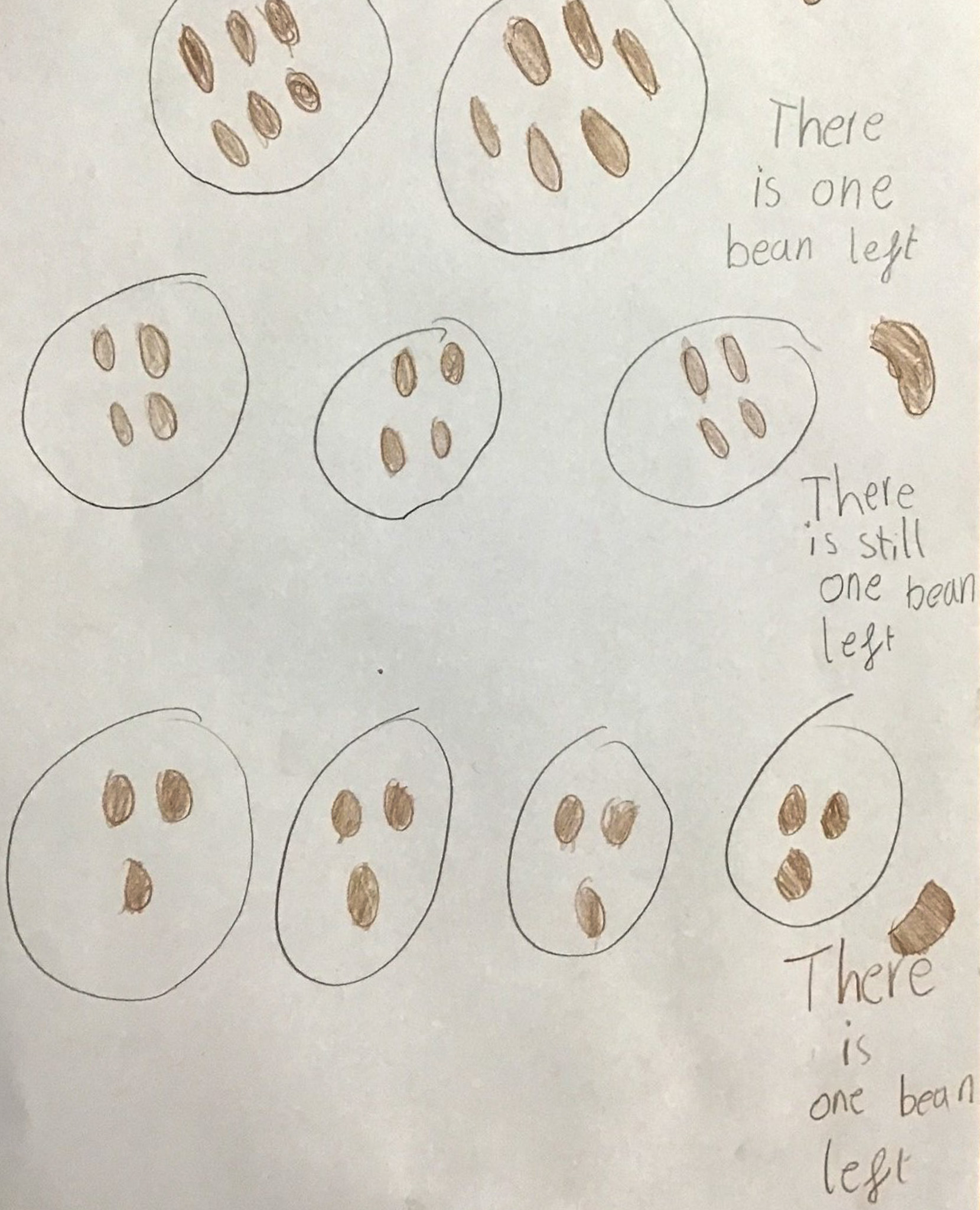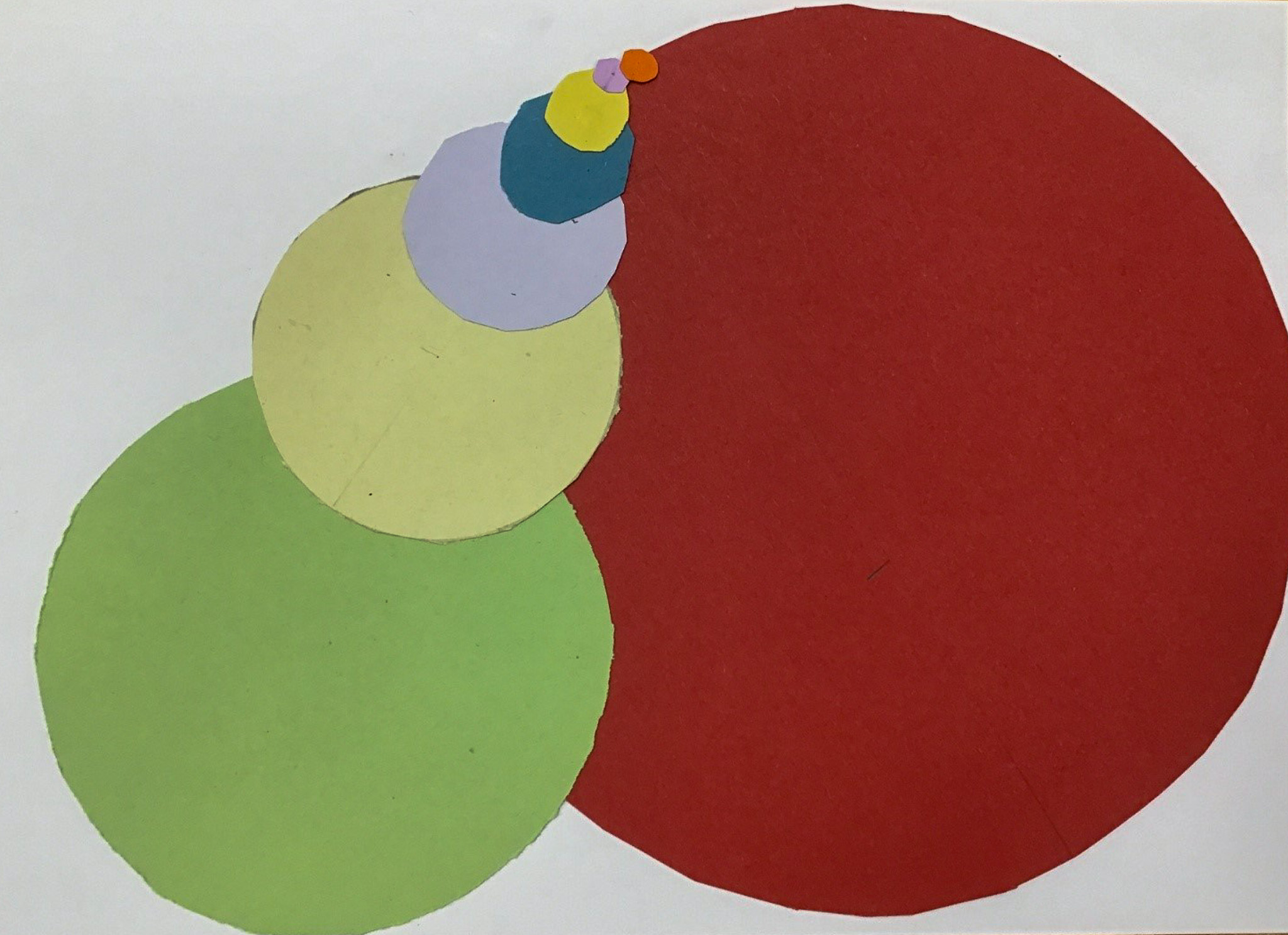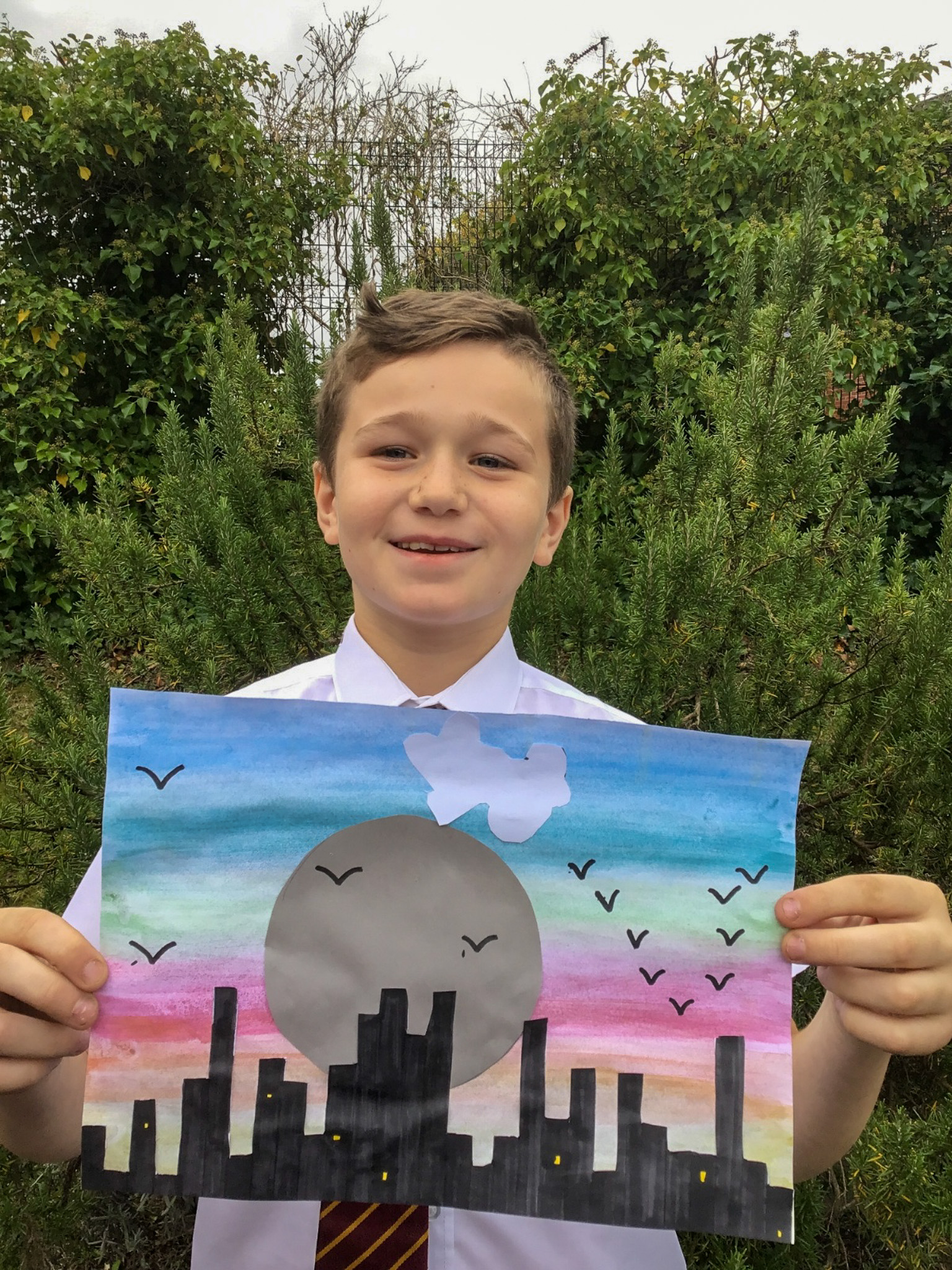Maths
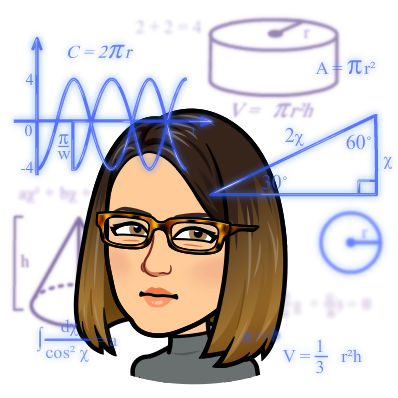
Mathematics is everywhere! It is the study of the measurement of, relationships with, and properties of quantities and sets, using numbers and symbols. At Woodland View, we recognise that mathematics is a fundamental tool for everyday life. It is an interconnected web of concepts that provide a way of viewing and making sense of the world. It is used to analyse and communicate information and ideas. Through our supportive and challenging approach, we aim to provide a range of experiences to equip our children to tackle a range of practical tasks and real life problems.
We aim for our children to:
- Develop a positive attitude towards mathematics.
- Become competent and gain confidence in mathematical knowledge, concepts and skills.
- Gain an ability to solve problems, reason, think logically and work systematically and accurately.
- Be able to reason mathematically and communicate the mathematics that they use.
- Apply maths across the curriculum and in real life.
- Develop their ability to work both independently and in cooperation with others.
How do we do this?
Children are taught mathematics in a range of ways to build their confidence and allow them to develop the positive attitudes that we strive for. Please click on the links below to find out more about each of our key approaches.
Maths Lessons
Children are taught maths in concept blocks, which allows teachers to spend time going deeper with children’s understanding and allows children to build up their understanding through a series of carefully planned steps. As a school, we use White Rose Maths to provide us with a long term plan for maths, however, teachers have the flexibility to change things depending on the needs of their class. Our long term plans can be found below:
-
Foundation Stage - Maths - Long Term Overview
-
Year 1 - Maths - Long Term Overview
-
Year 2 - Maths - Long Term Overview
-
Year 3 - Maths - Long Term Overview
-
Year 4 - Maths - Long Term Overview
-
Year 5 - Maths - Long Term Overview
-
Year 6 - Maths - Long Term Overview
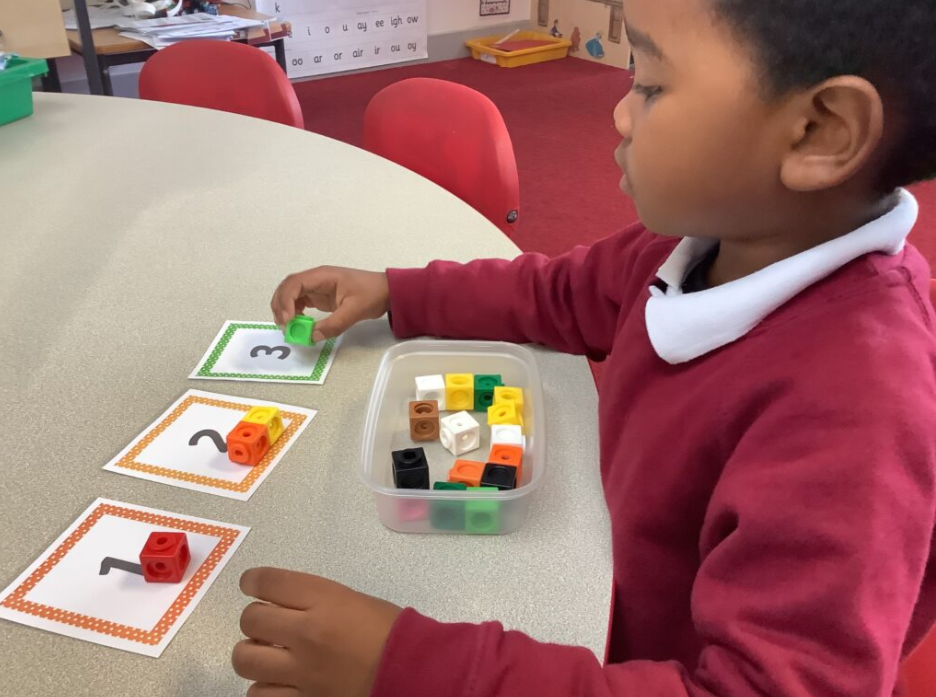
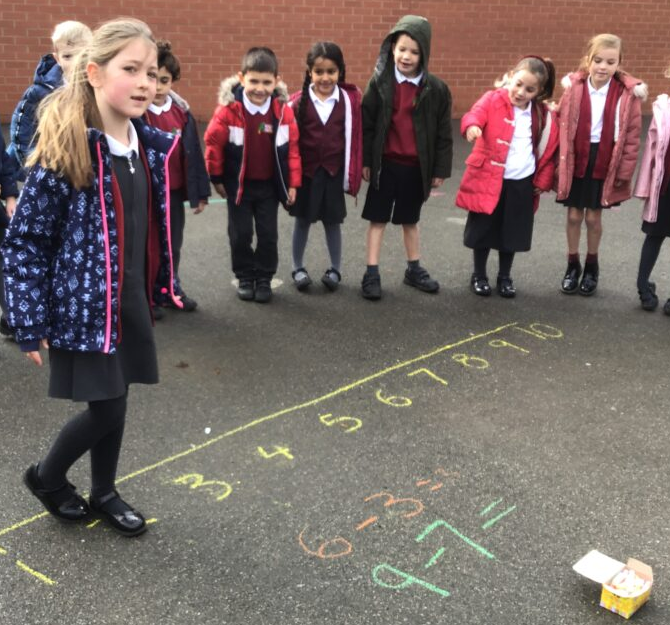
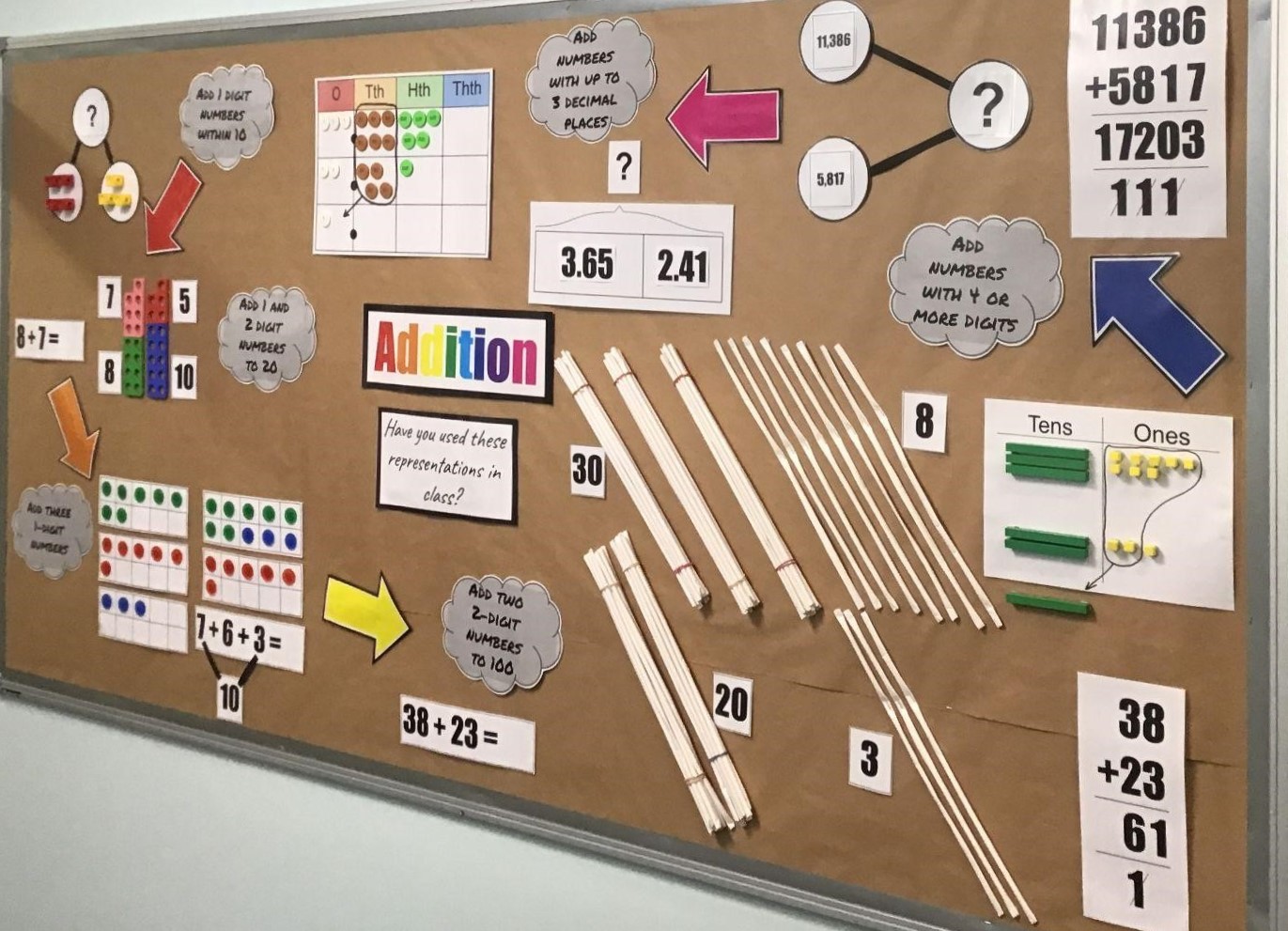
In lessons, children have access to a range of representations to aid their understanding as well as a range of concrete, pictorial and abstract representations. These are often looked at alongside each other to encourage the children to develop a deep understanding of methods and concepts. Children develop their methods until they reach the written methods that we as adults are more familiar with. Information on how our calculation methods build through the school can be found below:
All children are given opportunities to reason, problem solve and gain fluency. In our maths lessons, we provide children with a range of activities that allow them to work confidently both independently and collaboratively with their peers. In terms of our teaching approaches, we use elements from Teaching for Mastery in Mathematics. In particular, we encourage children to respond verbally to questions in full sentences; use STEM sentences to aid recall and retention; and use a range of representations.
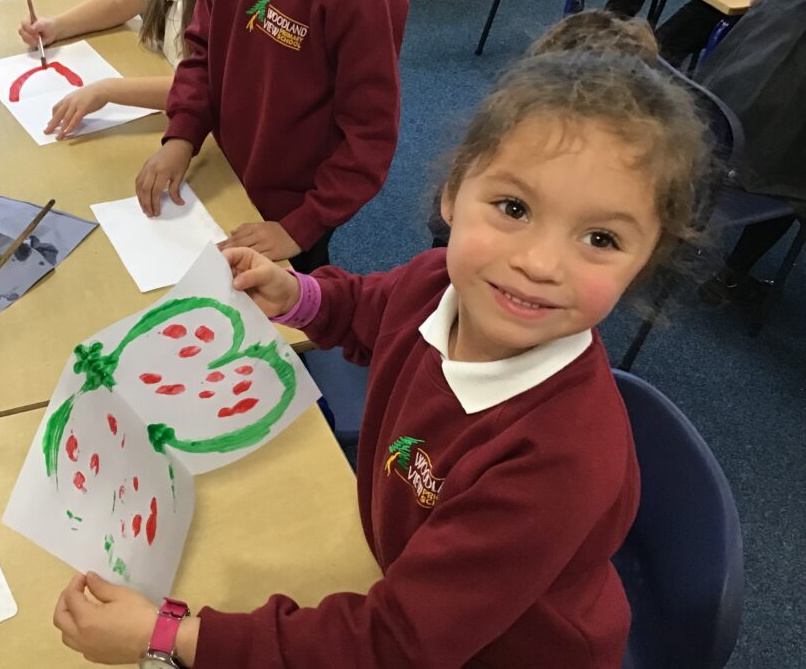
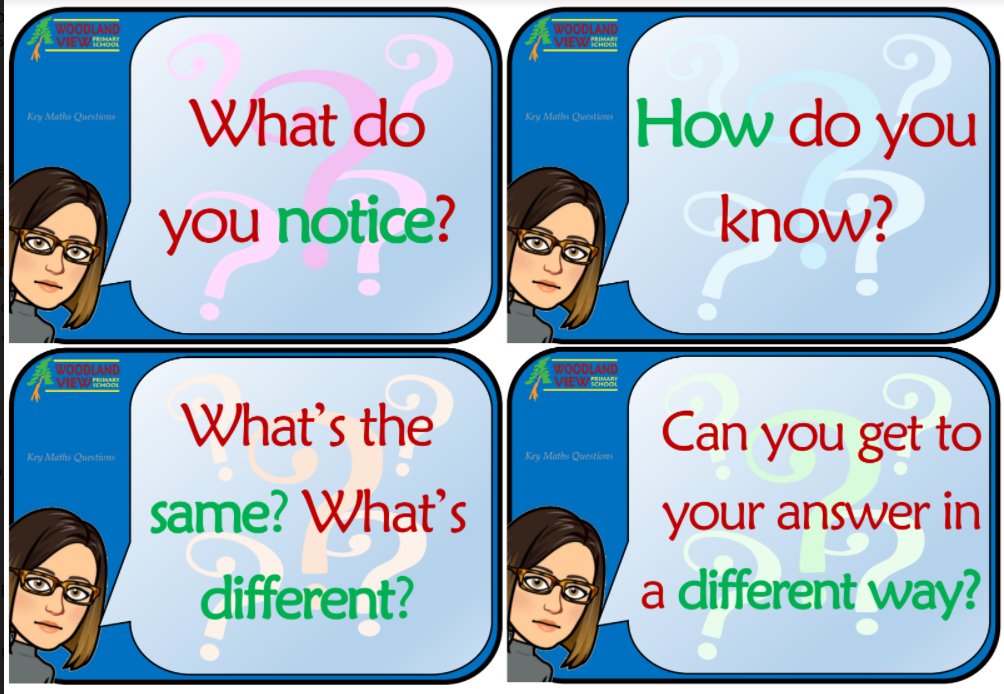
Key questions can be seen in all classrooms and teachers use these to challenge thinking:
- How do you know?
- What do you notice?
- What’s the same? What’s different?
- Can you get to your answer a different way?
From the very beginning of their mathematical journey, we encourage the children to use precise mathematical vocabulary in all year groups and this is further developed through our lessons.
Every classroom uses displays effectively to further support the children; these include working walls, helpful resources and great examples of work.
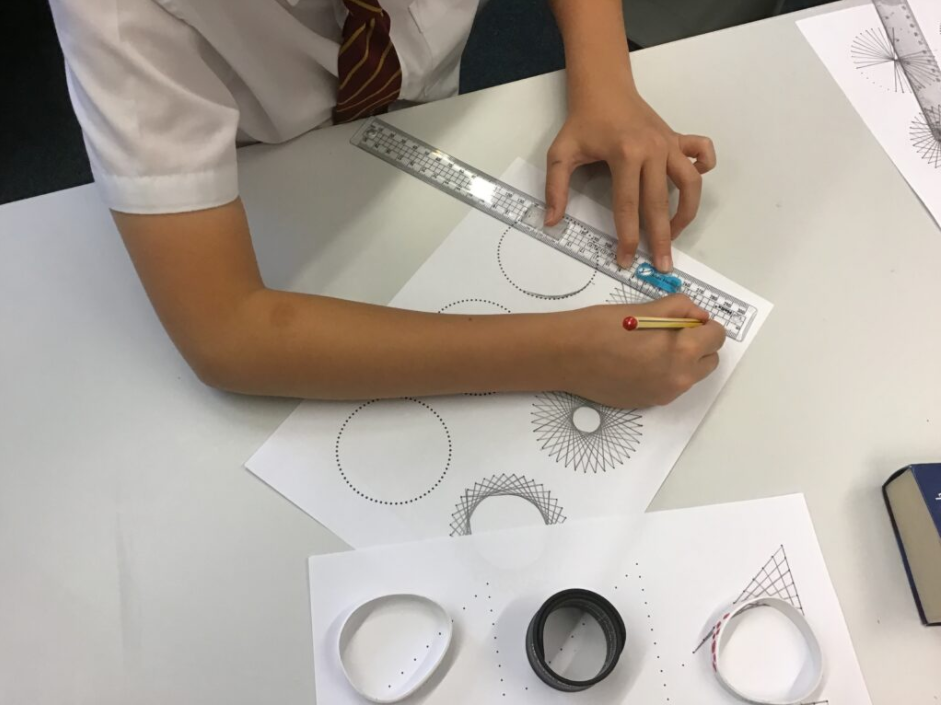
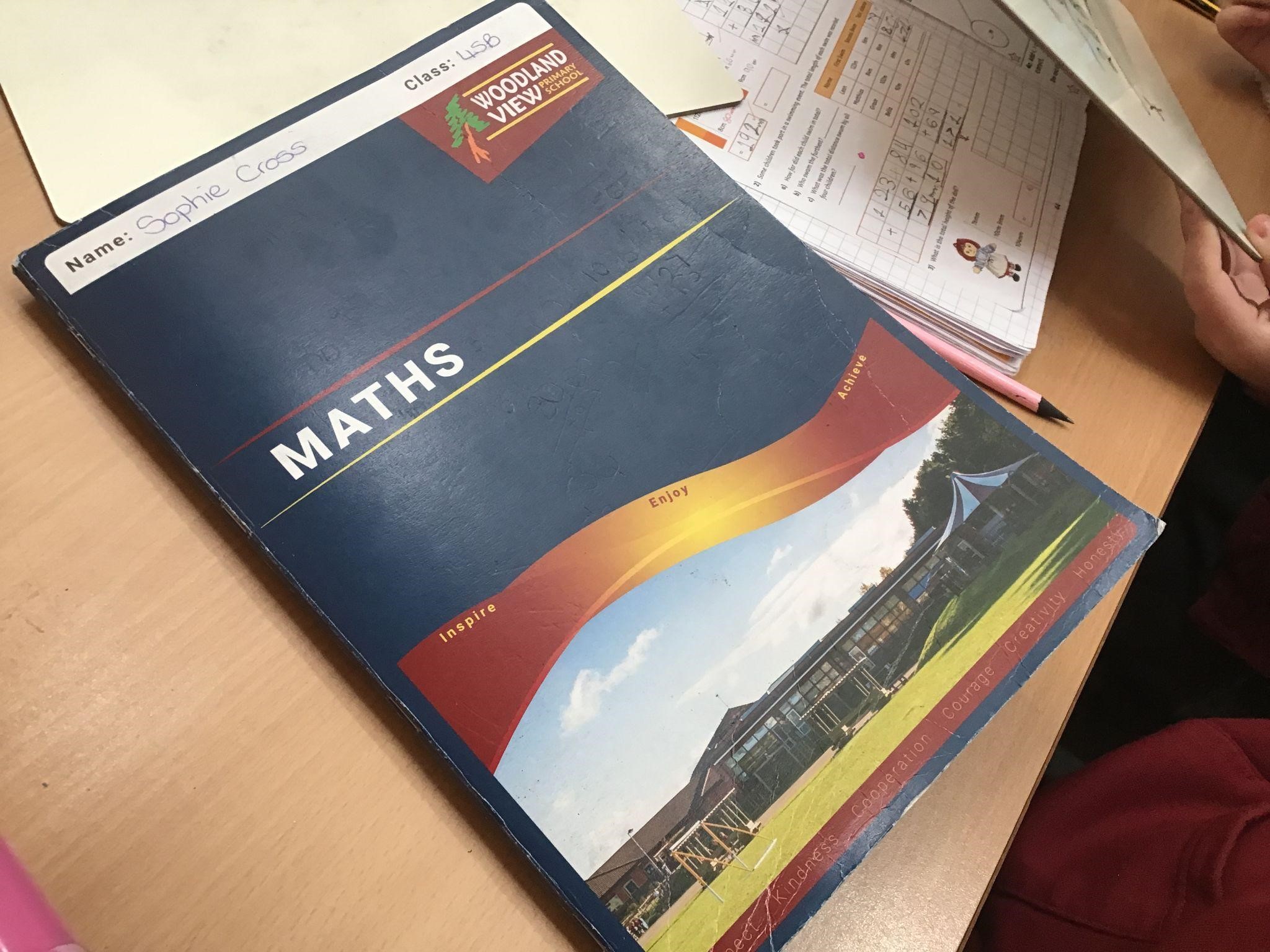
We provide opportunities for children to access maths using our inspire, enjoy, achieve approach and encourage the children to see that it is all around us. Children are engaged through practical and written challenges to further their understanding. To further support the children, our bespoke exercise books include specific mathematical key facts which are tailored to the year group content.
During lessons, children are encouraged to self-reflect on their learning; this can be seen in pink pen in their books. Additionally, teachers regularly set next steps that consolidate or extend the children’s thinking following lessons.
Each term, children will complete a maths assessment test (from our PiXL assessment system) and teachers will record attainment, analyse progress, conduct a Question Level Analysis and use informal assessment methods to identify gaps or misconceptions and steer future planning. Teachers and Teaching Assistants are involved in delivering targeted extra support through interventions based on the information gathered in assessments.
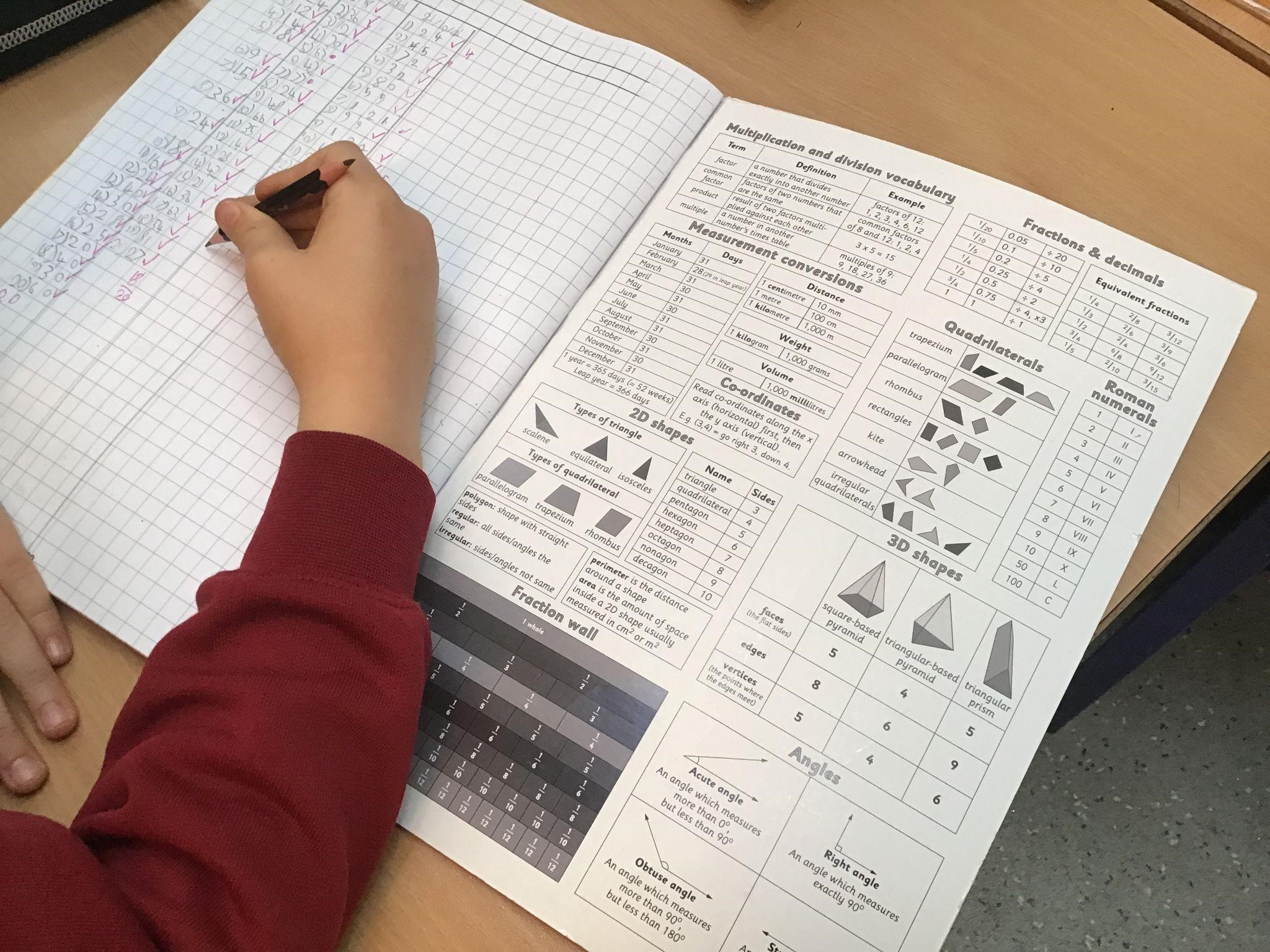
Arithmetic
From the Spring Term of Year 2, all children have a weekly timetabled arithmetic session. During these sessions, the children consolidate key calculation skills. Bi-weekly, children complete a short arithmetic test and then work on consolidating key skills in the alternate weeks. The concepts taught each week and covered in the tests build up throughout the year, introducing a new skill into the mix each time. Children are encouraged to use models and images to deepen their understanding.
Additionally, each term, children will complete an arithmetic test as part of our Maths assessments (from our PiXL assessment system) and teachers will record attainment, conduct a Question Level Analysis and use informal assessment methods to identify gaps, steer planning and provide extra support where needed. Arithmetic sessions can be seen throughout books on yellow paper.
Flashback 4s
Knowing more and remembering more is so important; we know that children if things aren’t revisited, they can quickly become forgotten. Therefore, we use flashback 4s weekly to give the children a chance to recap and resist prior learning. These are used at the start of a lesson and the children are given a question from the last lesson, last week, last term and last year. The children are provided with key reminders before having a go at the questions themselves. This repetition of skills is what helps to move these concepts and skills into the long term memory.
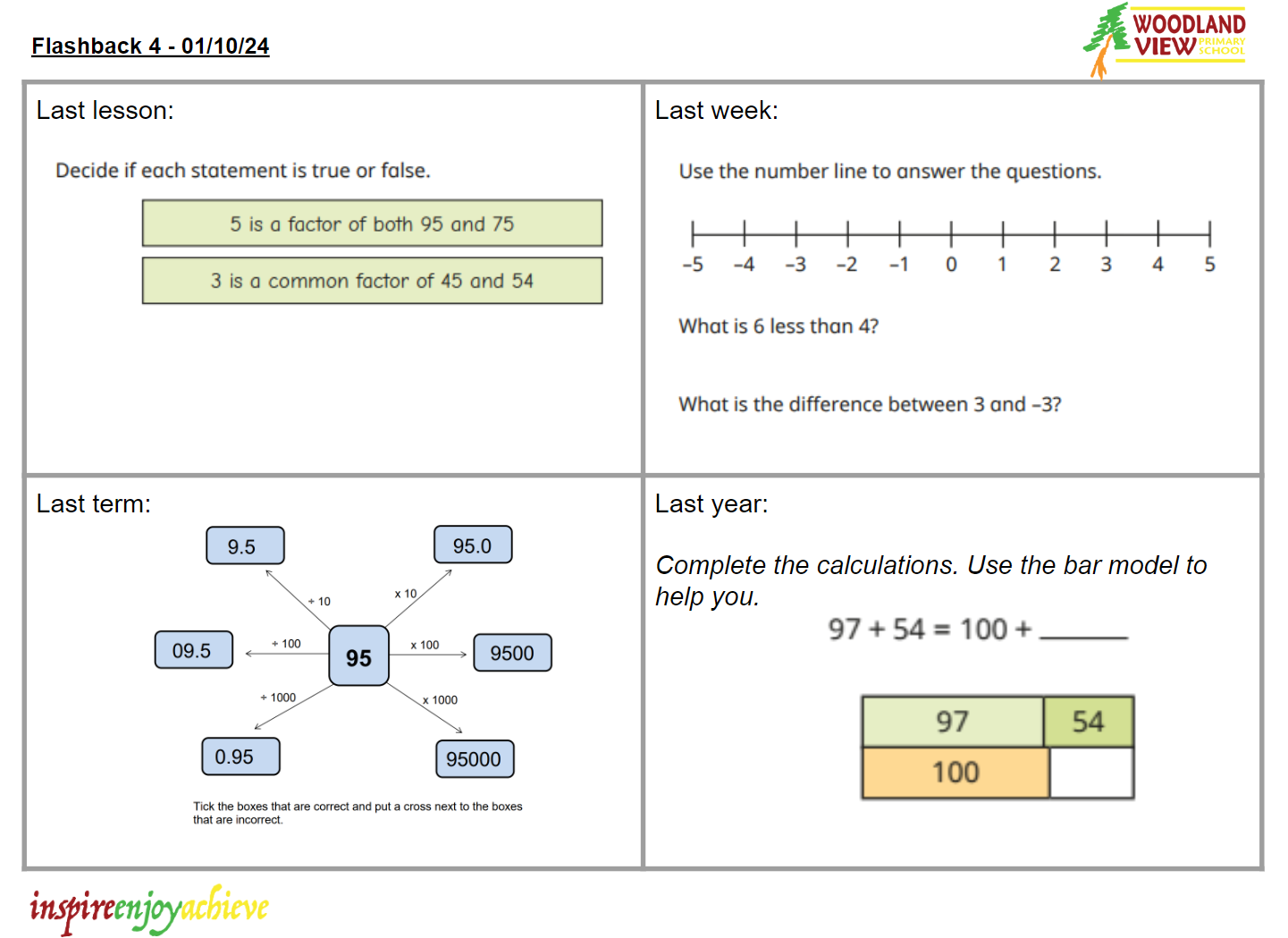
KIRFs (Key Instant Recall Facts)
As a school, we place great value on important number facts such as number bonds and times tables facts which need constant practice and rehearsal. Therefore, we have KIRFs (Key Instant Recall Facts). Each half term, children receive a new KIRF that will be their focus for that half term.
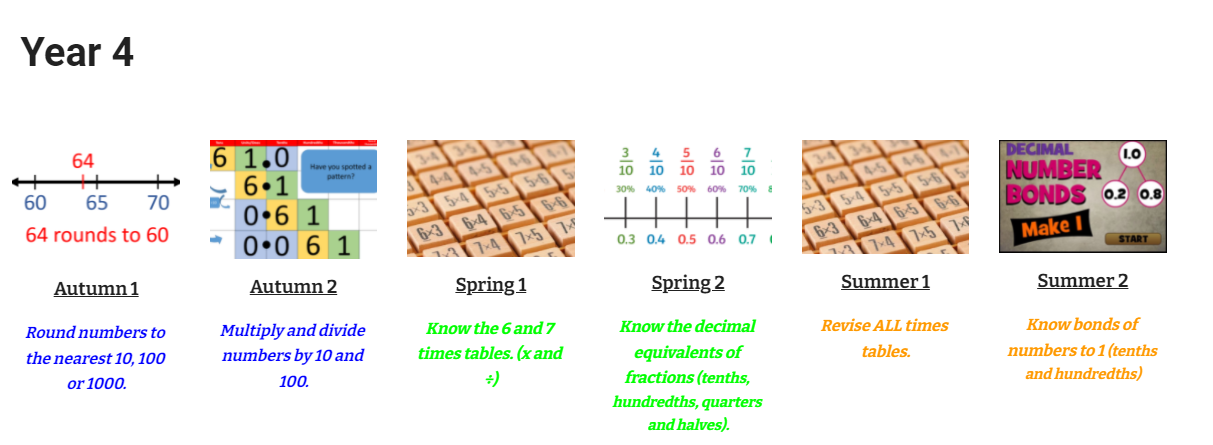
Regular practice of these KIRFs helps children to develop fluency and automaticity with these number facts which are the essential building blocks of their mathematical understanding. It is so important that they are able to recall these facts quickly, confidently and accurately. These number facts have been chosen as our KIRFs due to the fact that they are necessary for so many other elements of maths.
Our KIRFs can be found on the school website and are also printed within children’s reading records so that they can be constantly revisited at home. The third week of each half term is KIRF week where children spend their designated homework time working on their facts and then share this learning with their teachers.
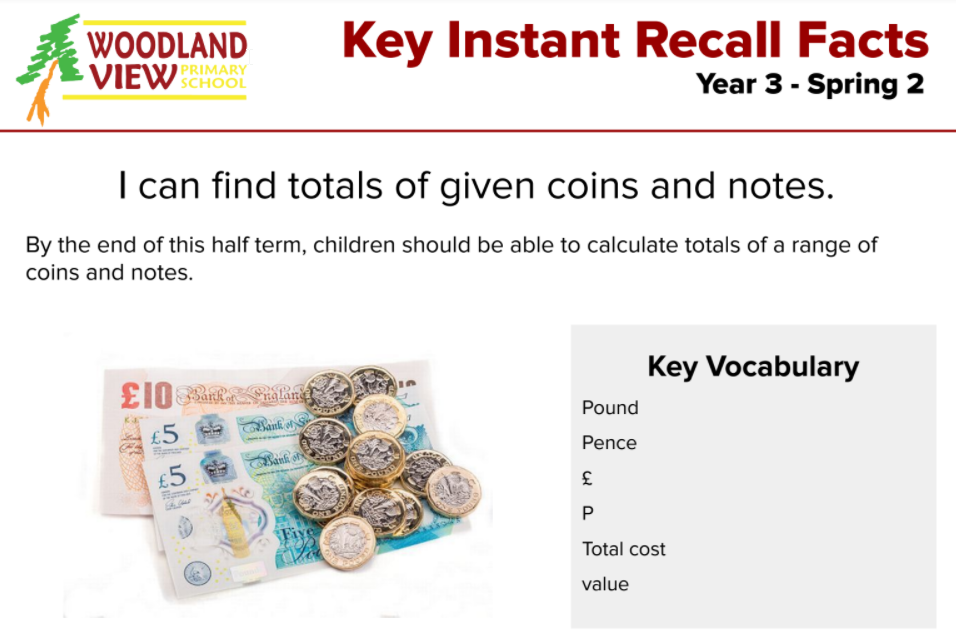
Mastering Number
Children in our foundation stage and Key Stage One take part in mastering number sessions daily. This is a short additional maths session, outside of the daily maths lesson, that encourages children to:
- Move away from counting everything
- Become mathematically observant - noticing relationships between numbers
- Become able to make connections between different facts
- Become able to explain their mathematical thinking both in words and through the use of representations
- Develop and secure knowledge of key number facts by the end of each year
The children will be encouraged to develop a deep understanding of number through a range of models and images and will make regular use of rekenreks (see images below).
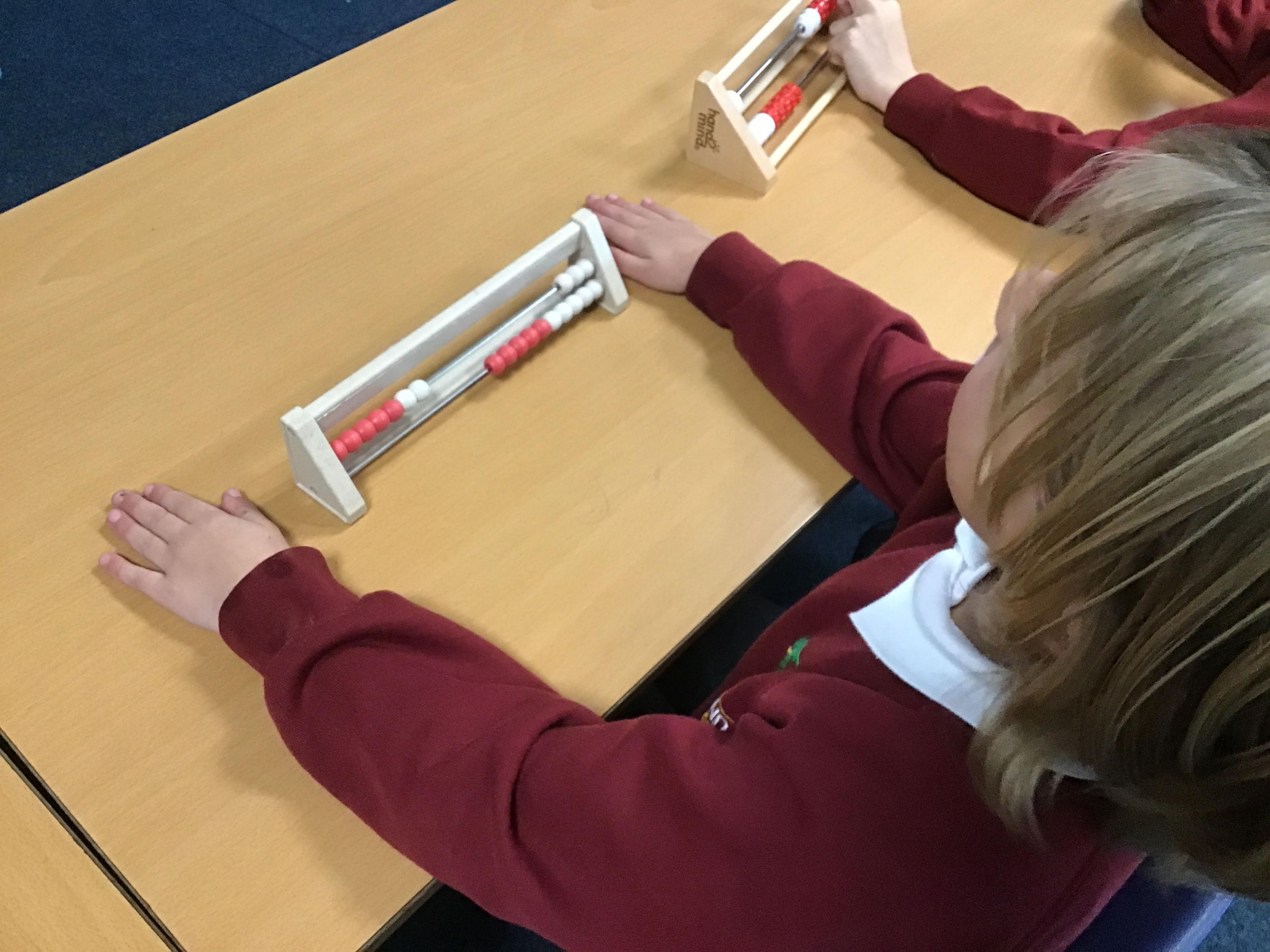
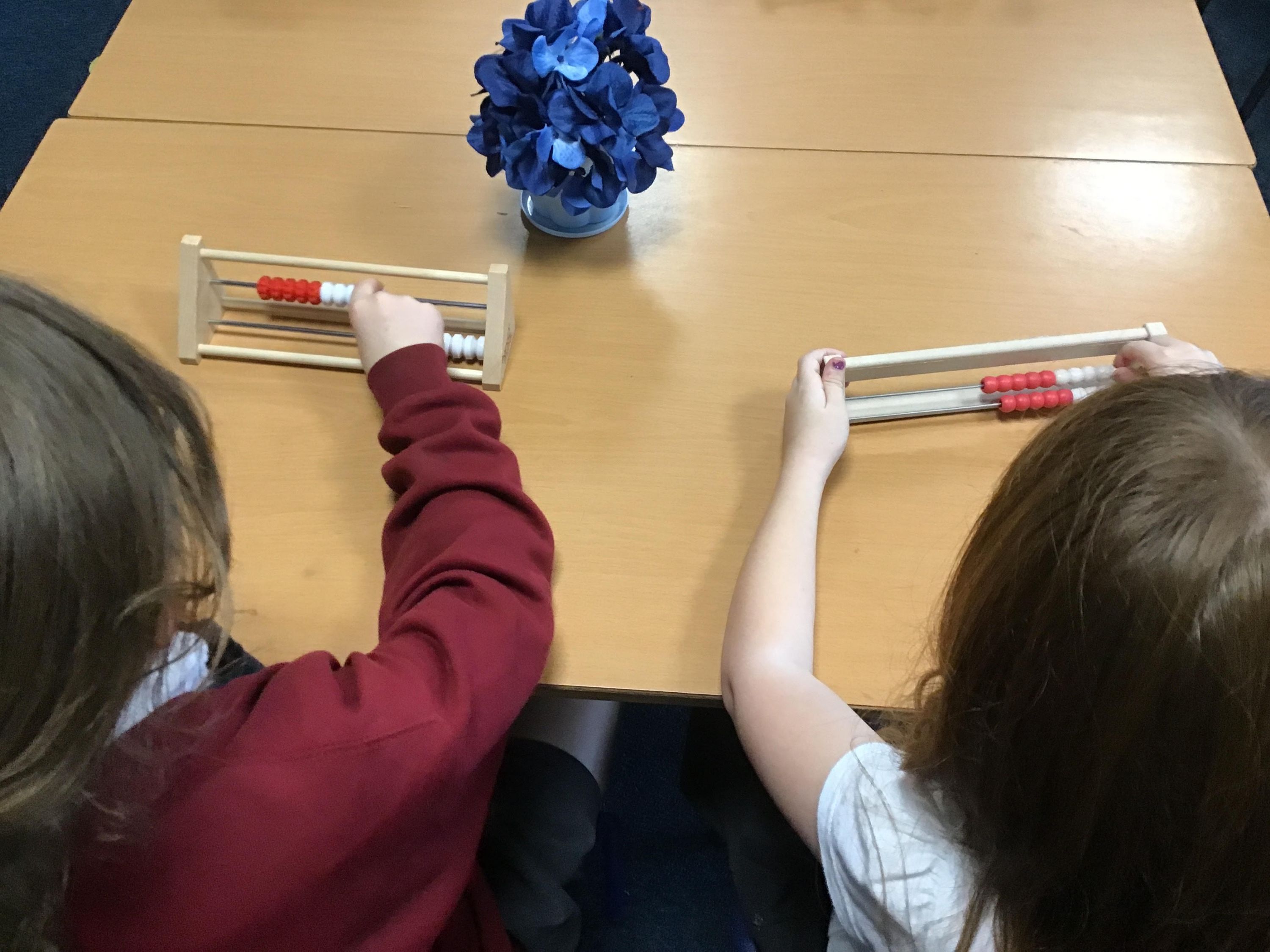
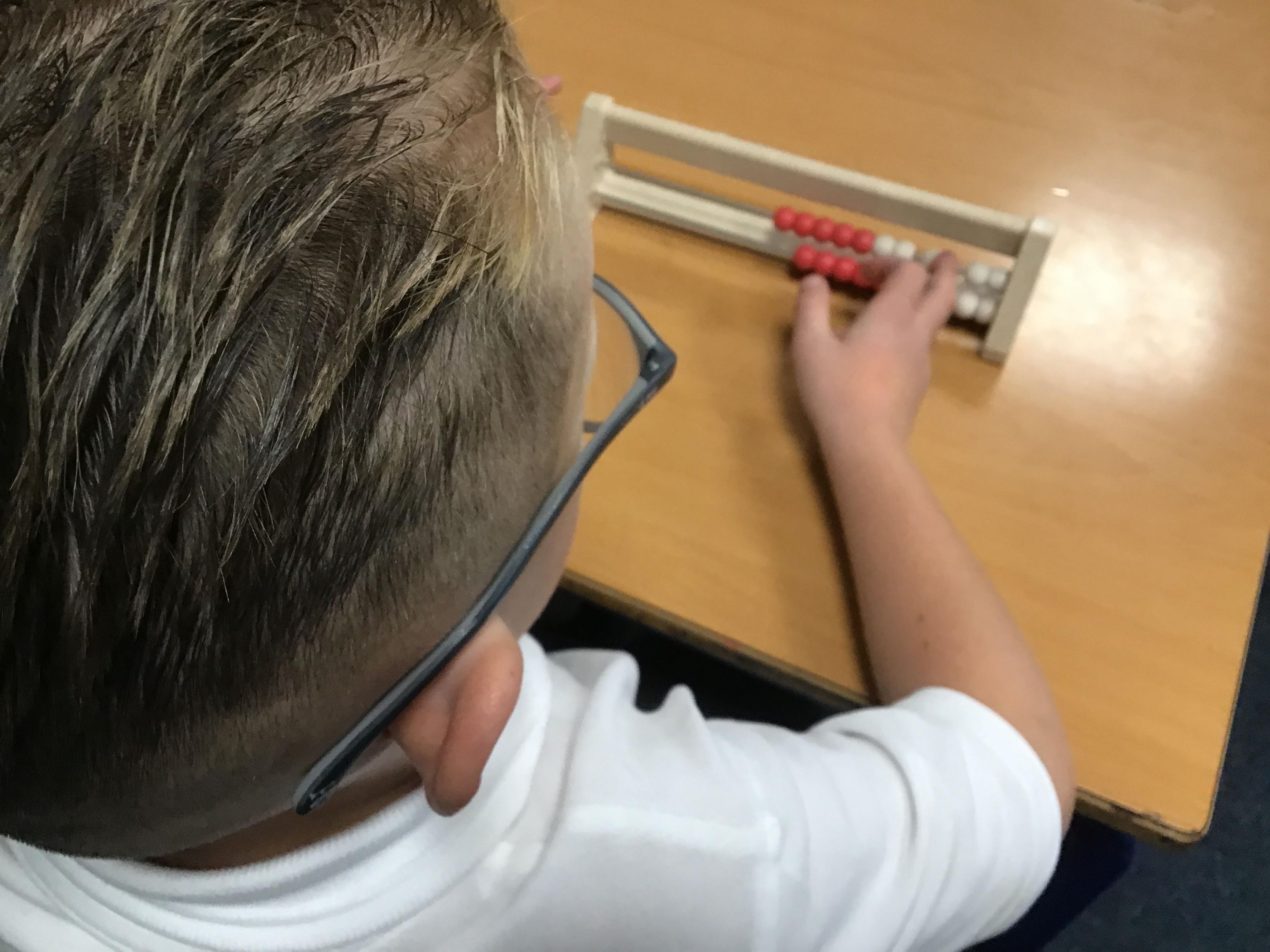
Times Tables
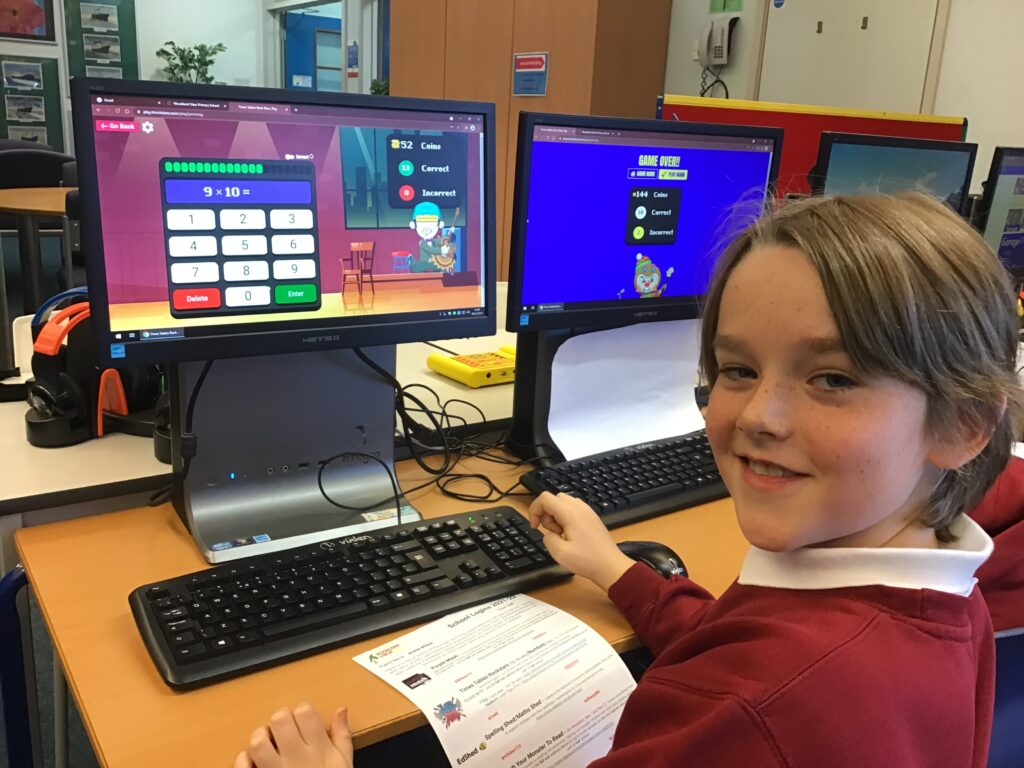
The National curriculum expectation is that, by the end of Year 4, pupils are capable of recalling all times table facts, up to 12 x 12, including the associated division facts. We need to aim for automaticity of facts rather than simply memorisation. Automaticity of facts will allow the children to reason and think critically using the facts as they will forge stronger links about the relationships between their times table facts, allowing them to think of 9x6 as (10x6)-6.
In class, children in Years 2 - 4, will be introduced to a new times table at the start of every half term that will be the focus for the rest of the half term. They will investigate the facts, draw links and make connections with the real world. As a school, we also use Times Table Rockstars (TTRS); this is a platform for the children to develop speed of recall in their times tables facts. The tables in the garage area will be set inline with what the children are working on as a class. Additionally, there is the Year 4 Multiplication Tables Check to keep track of how children are getting on. Parents of children in Year 4 will be contacted separately regarding this.
Maths Week
We celebrate maths through Maths Week each year during November. This is an opportunity for us as a school to excite and inspire the children about mathematics by stepping away from the ‘traditional’ maths lesson. Through the week, children are exposed to stories with a mathematical focus; they are encouraged to see how maths can be linked to art; and they are inspired to be creative with mathematical scavenger hunts at home!
Please see below for just a glimpse of what our children got up to during Maths Week 2024! They looked at mathematical stories, created incredible mathematical art and found out about some amazing mathematicians! For more, please look at our school blogs.
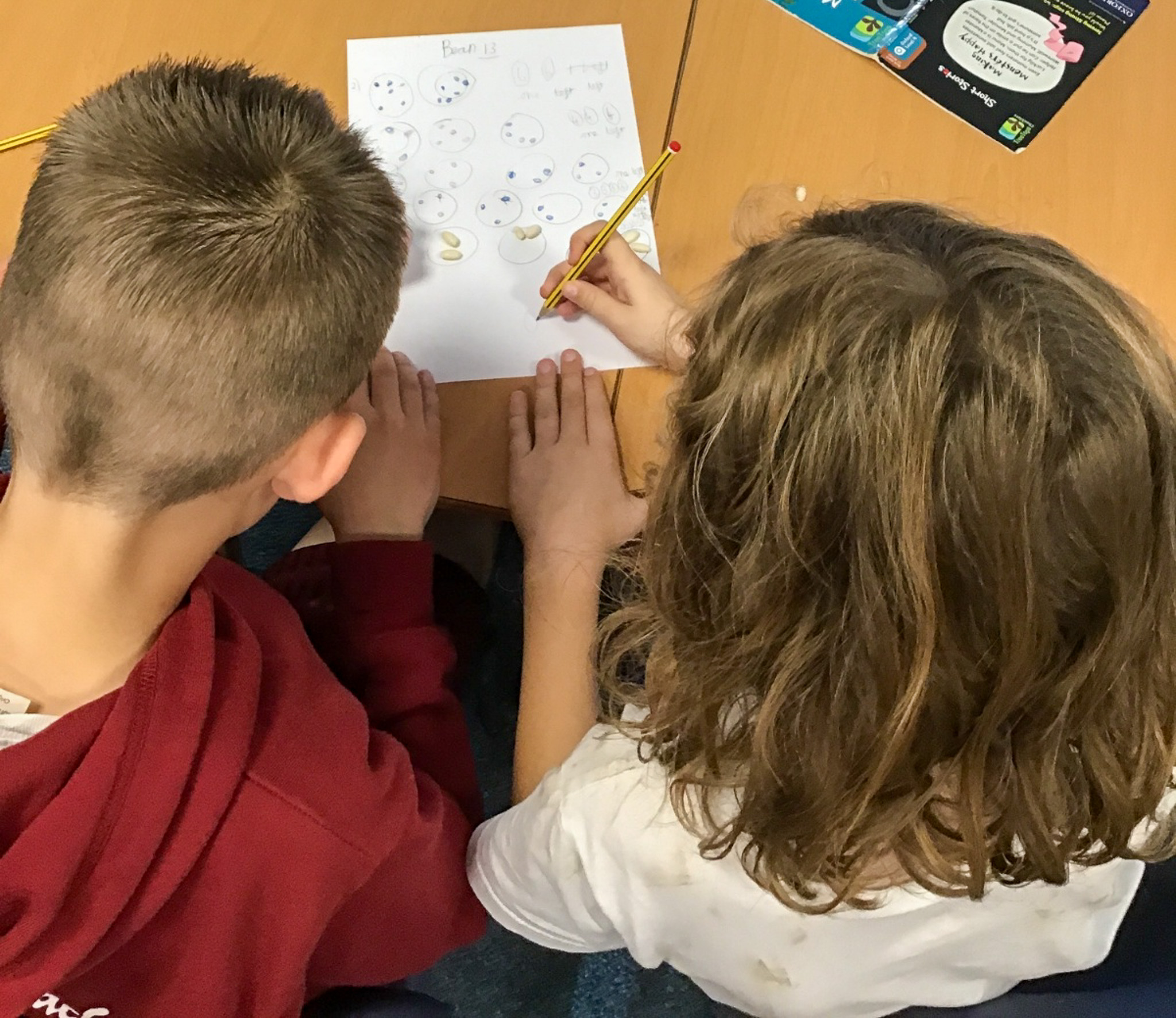
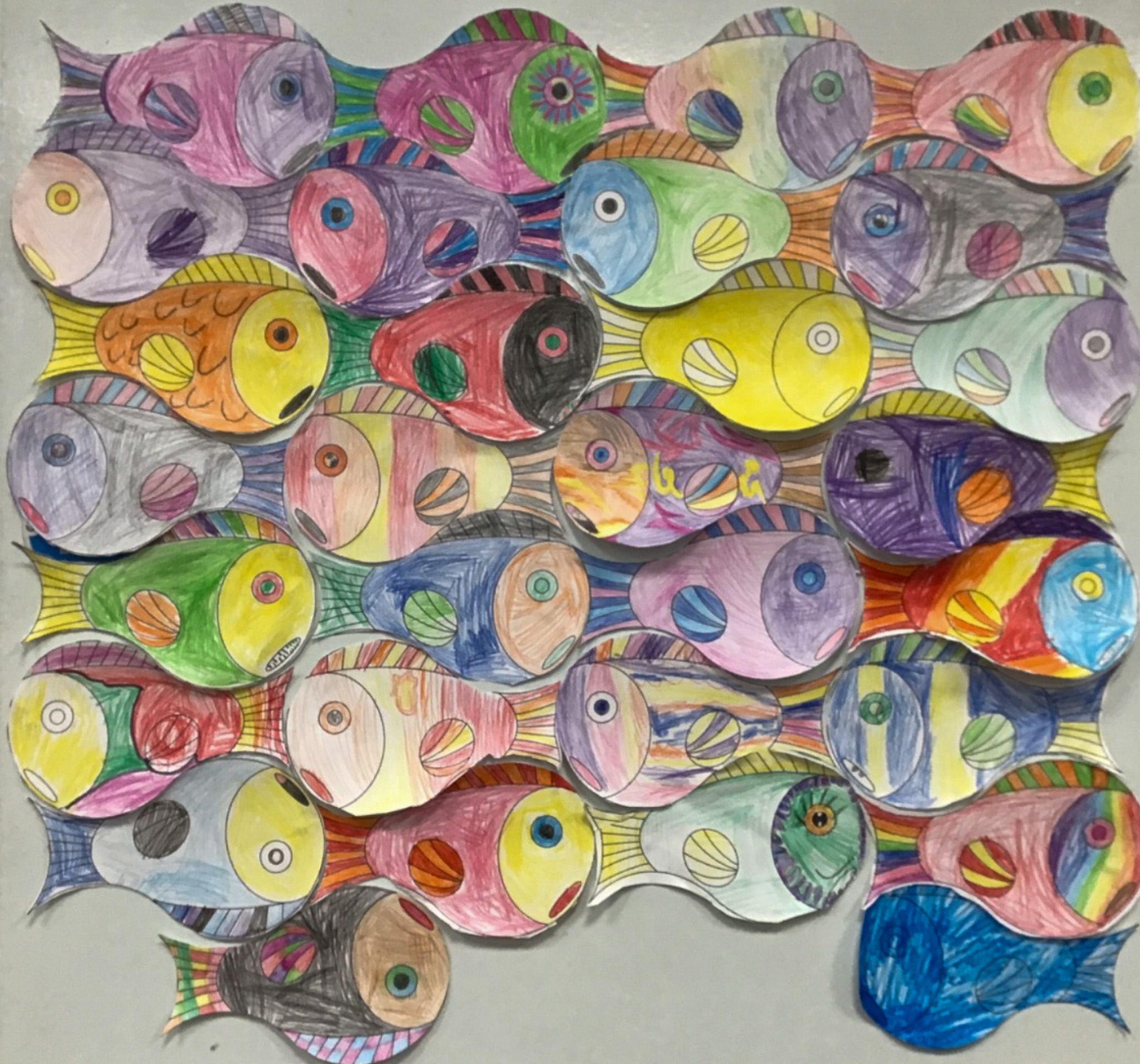
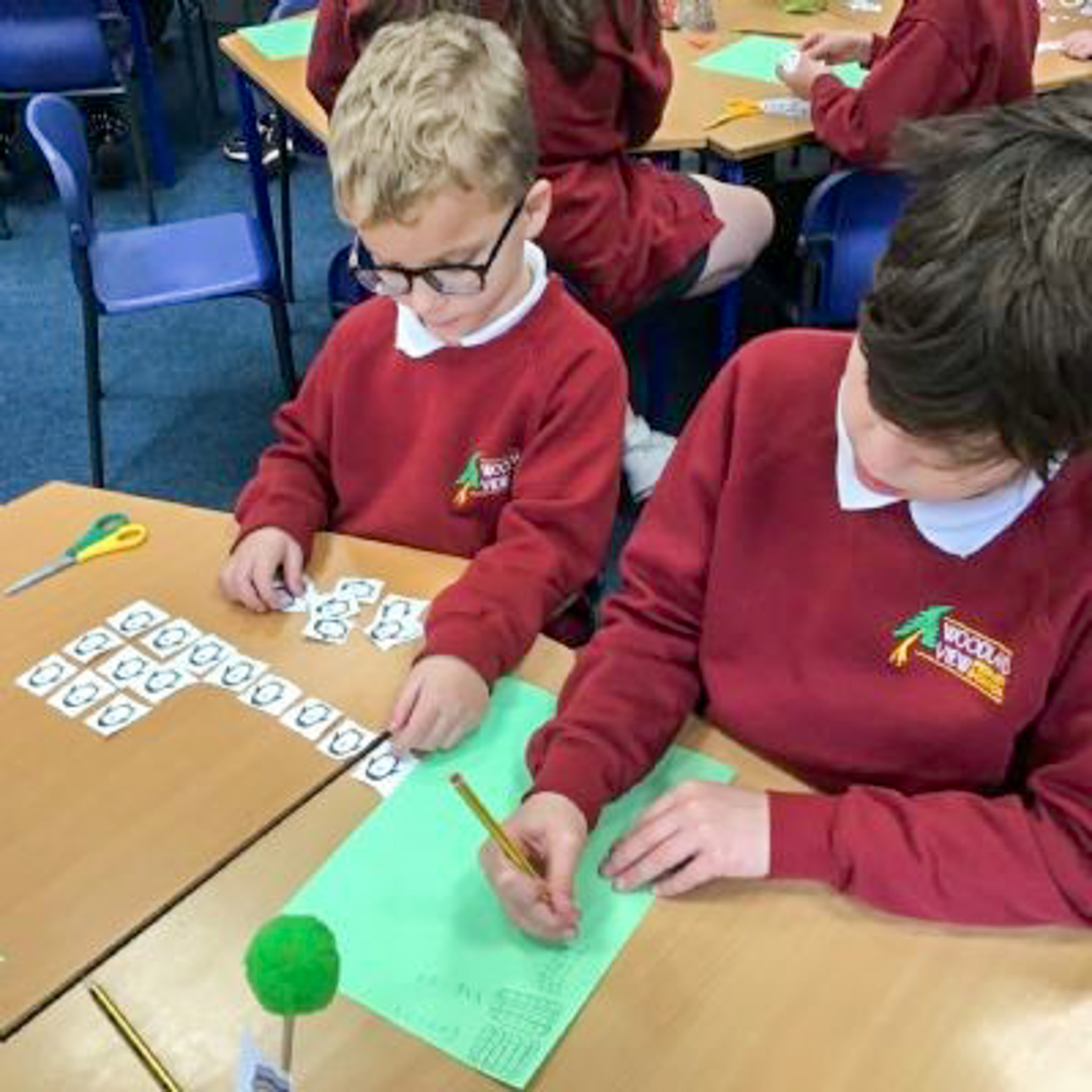
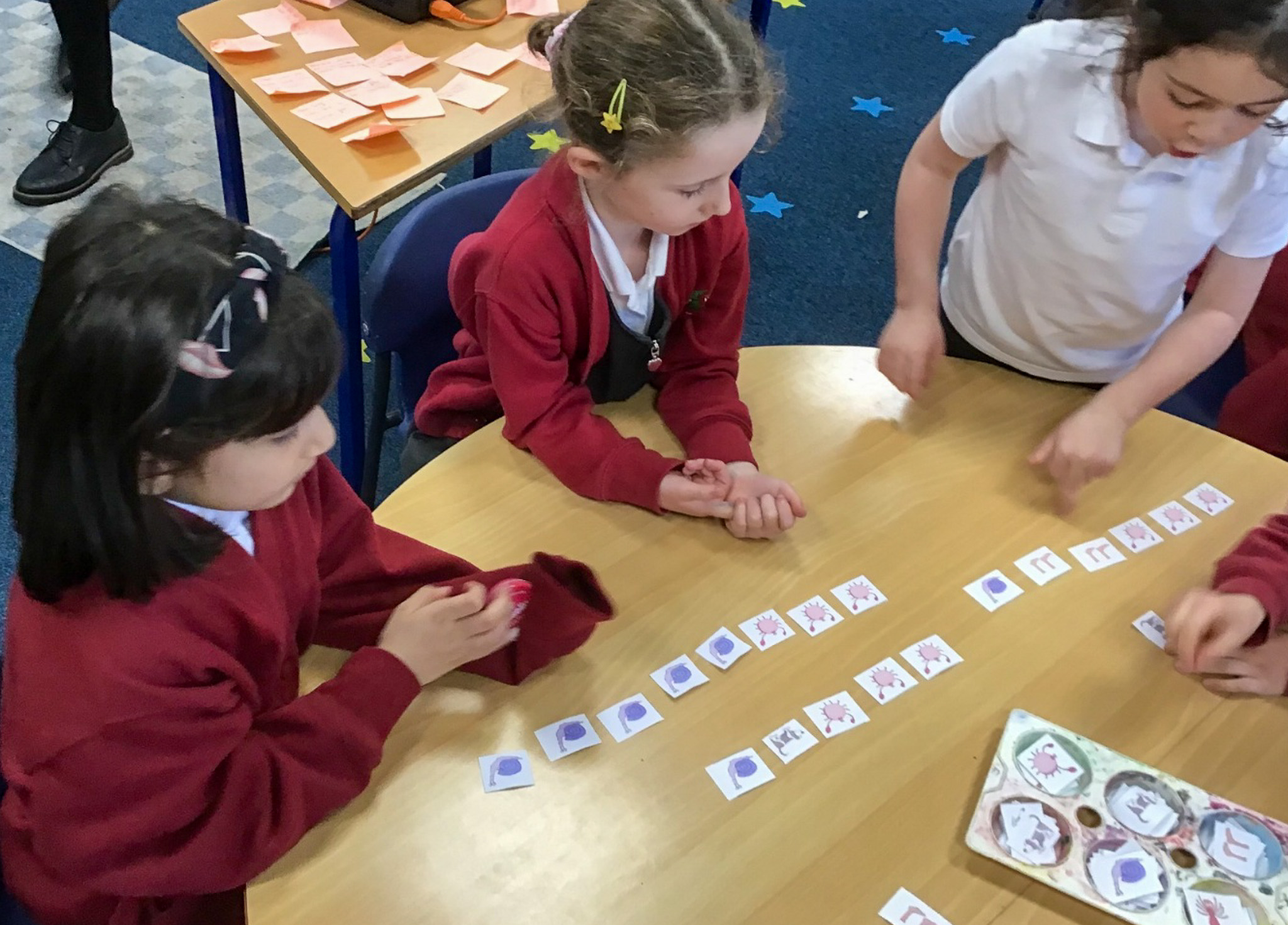
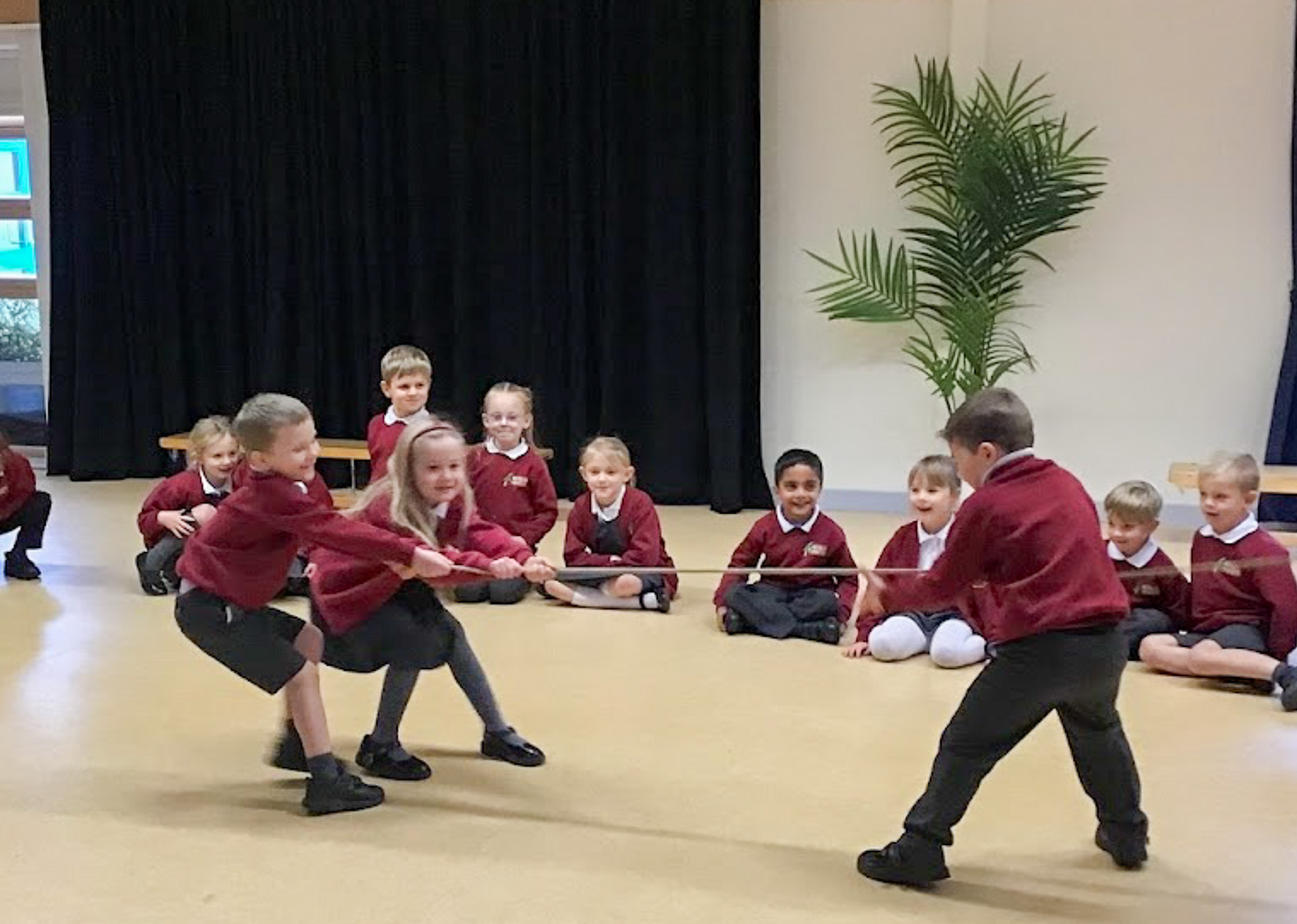
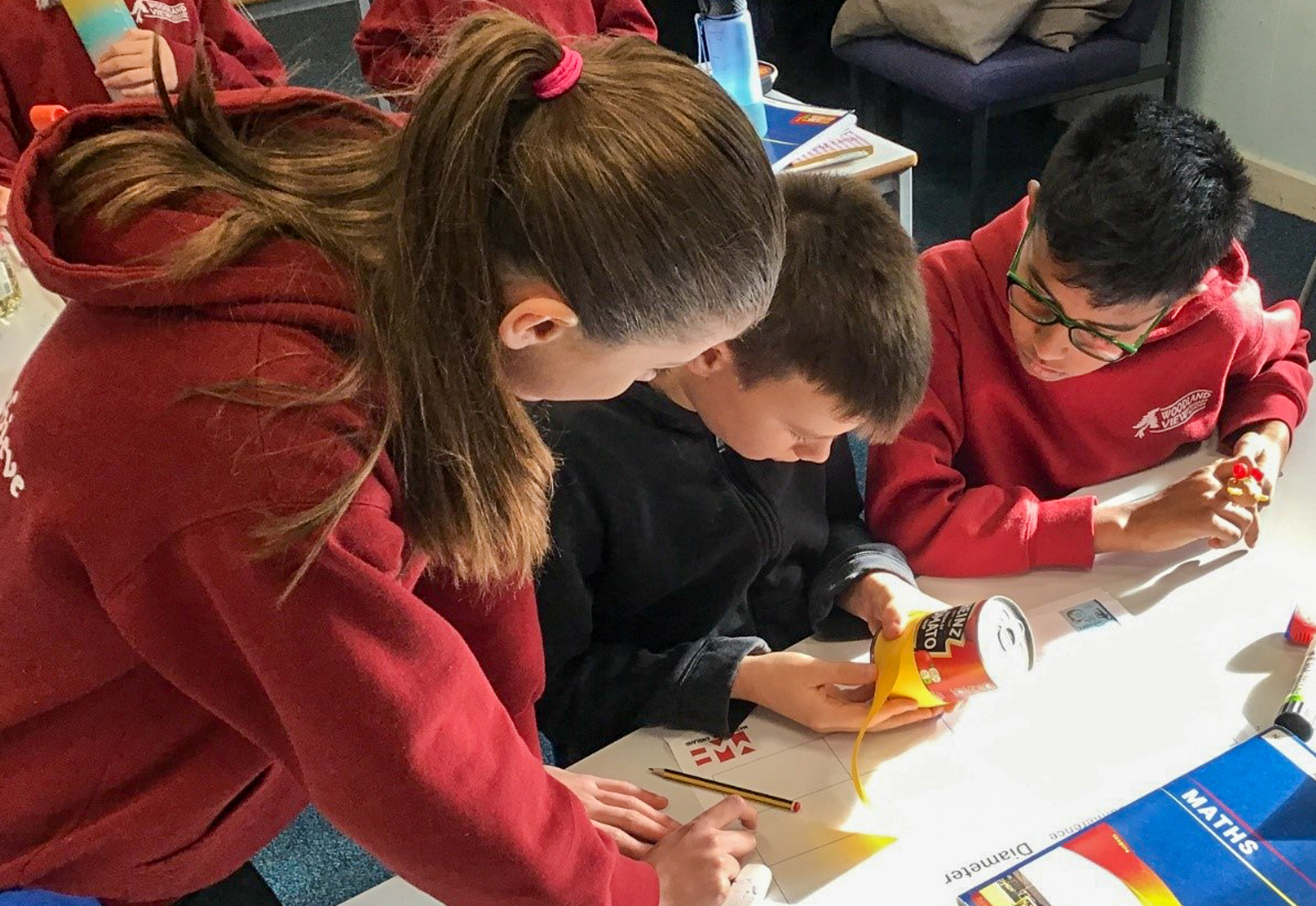 +
+
